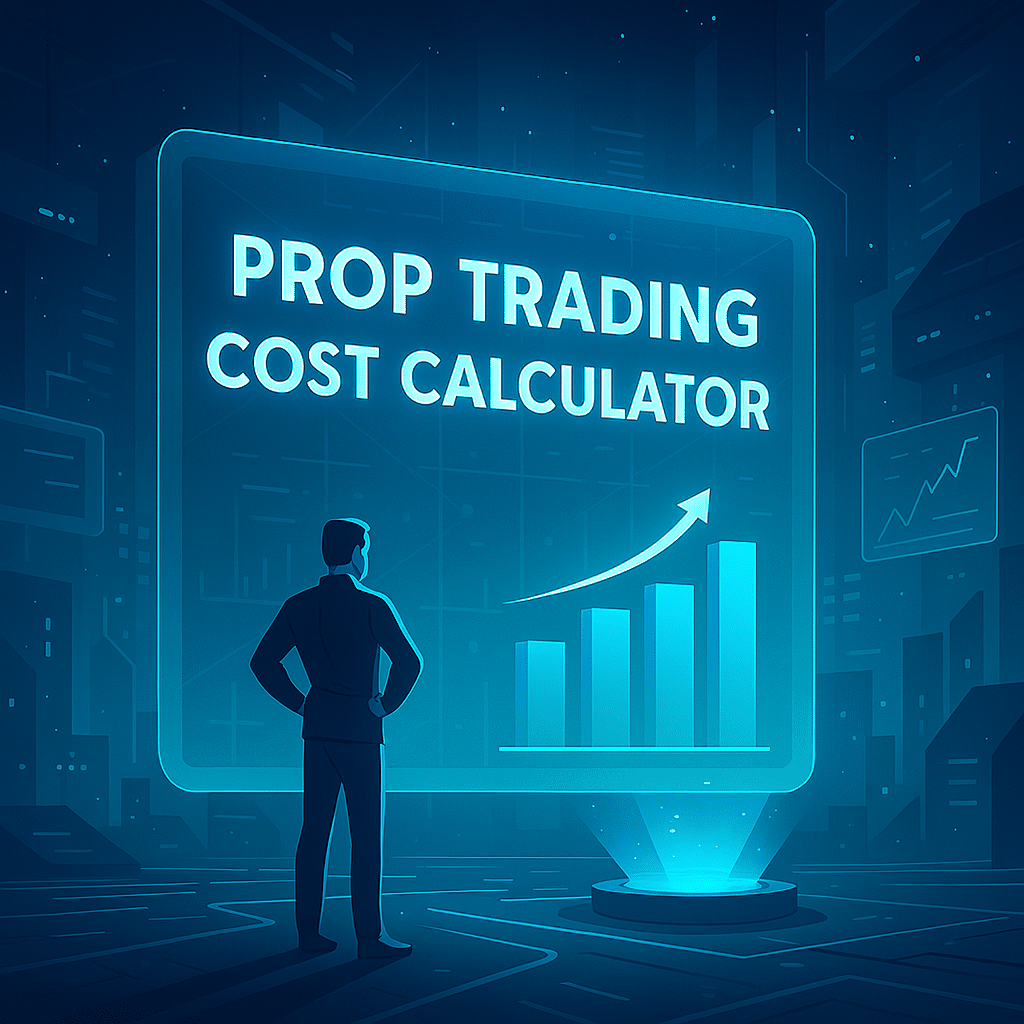How Much Does Prop Trading Really Cost You? Use a Prop Trading Cost Calculator to Find Out
Entering the world of proprietary trading opens exciting opportunities for traders to access significant capital without risking personal funds. However, many overlook a critical aspect when getting started — the actual cost. This is where a prop trading cost calculator becomes essential.
Accurately calculating your potential expenses before joining a prop firm can help you avoid surprises, manage your capital wisely, and improve your chances of long-term success.
What Are the Real Costs Behind Prop Trading?
Though prop trading is often marketed as a low-risk way to access capital, it does involve specific costs. These expenses may vary depending on the trader’s approach and the firm’s structure. Understanding them helps you prepare better.
1. Evaluation Fees
Most prop trading firms require candidates to complete an evaluation or challenge phase before providing access to a funded account. This involves a one-time fee, which depends on the account size you choose. These fees are usually non-refundable and are considered your initial investment in the process.
2. Time Commitment
While not a direct financial cost, the time spent preparing for and completing the evaluation carries opportunity cost. Delays in reaching the funded stage mean postponing the potential for profit generation. Efficient time management is crucial to minimize this cost.
3. Trading Commissions
Even after becoming a funded trader, commissions will apply to each trade. These fees can accumulate, especially for high-frequency traders, and should be factored into your monthly trading expenses.
4. Re-evaluation or Retry Fees
In case a trader violates the evaluation rules or fails to meet the objectives, a new challenge fee is typically required to retry. Therefore, lack of preparation or poor risk management can increase overall costs significantly.
Why You Should Use a Prop Trading Cost Calculator
Too often, traders underestimate the total investment involved in prop trading. A prop trading cost calculator allows you to assess all possible costs based on your trading plan and behavior. It helps you:
-
Understand the complete cost breakdown.
-
Anticipate possible retries and their financial impact.
-
Estimate recurring trading commissions.
-
Allocate your resources efficiently.
-
Plan ahead with better financial discipline.
Such a tool is especially useful when comparing different account sizes, strategies, and risk levels. It helps eliminate guesswork and brings transparency to your trading journey.
What Factors Influence Your Prop Trading Costs?
While base fees are typically fixed, the total cost can vary greatly from one trader to another. This depends on multiple factors such as:
Your Trading Style
Scalpers or intraday traders tend to place many trades, increasing commission costs. On the other hand, swing traders may incur lower trading fees but spend more time in the challenge phase.
Your Discipline and Experience
Traders with solid strategies and discipline often pass the evaluation on their first attempt. Others may need multiple tries, which can substantially raise their overall investment.
Risk Management
Adhering to drawdown limits and daily loss rules is vital. Violating these rules leads to disqualification, requiring a restart — and an additional fee.
Common Mistakes That Lead to Higher Costs
Even experienced traders can face unexpected expenses due to common errors. Being aware of these pitfalls can help reduce unnecessary spending:
-
Ignoring the rules: Simple violations like exceeding the daily loss limit can result in account termination, regardless of your performance.
-
Overtrading: Executing too many trades increases commissions and risk exposure.
-
Starting too soon: Jumping into a challenge without proper preparation or demo testing can lead to early failure.
Tips to Manage and Reduce Your Prop Trading Costs
1. Plan Ahead with a Clear Strategy
Before applying for a challenge, ensure that your strategy is well-tested and suitable for the firm’s rules. This increases your chances of passing on the first try.
2. Use a Cost Calculator
A prop trading cost calculator gives you a clear overview of what to expect. This includes evaluation fees, commissions, potential retries, and even indirect costs like time and tools.
3. Choose the Right Account Size
Select an account size that aligns with your skill level and goals. Larger accounts often come with higher fees, so it’s essential to choose wisely based on your readiness.
4. Track Your Progress
Monitoring your trades and performance during the evaluation helps you stay within the risk parameters and avoid mistakes that may lead to reset fees.
Is the Cost of Prop Trading Worth It?
The upfront costs and evaluation process may seem challenging, but they are a gateway to trading larger capital without personal financial exposure. Once you pass the challenge and manage a funded account, the earning potential increases significantly.
With regular profit payouts and a fair profit split, the return on your initial investment can be substantial — especially for consistent and disciplined traders.
Final Thoughts: Know the Numbers Before You Start
Prop trading can be a rewarding path for skilled traders, but only if approached with preparation and financial awareness. Understanding the full picture of your expenses is a crucial part of that journey.
Using a prop trading cost calculator can help you make informed decisions, avoid unnecessary fees, and focus on what matters most: growing your trading career.
Take the time to estimate your costs, evaluate your readiness, and approach prop trading with a plan — not just ambition. That mindset is what separates successful traders from the rest.

